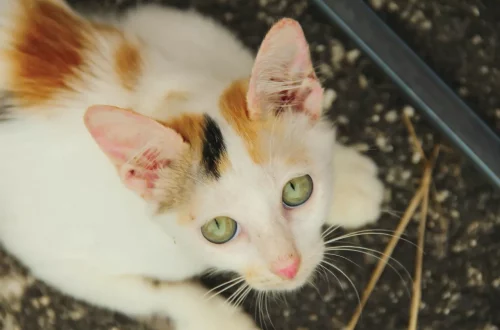
Top Food Recommendations for Your Great Dane Puppy
Caring for a Great Dane puppy involves more than just providing a loving home and ample playtime; it also requires an understanding of their unique nutritional needs. These gentle giants grow rapidly, especially during their first year, and proper nutrition plays a crucial role in their overall health and development. As one of the largest dog breeds, Great Danes have specific dietary requirements that differ from smaller breeds. Their growing bodies need a balanced diet rich in protein, healthy fats, vitamins, and minerals to support their bone development and muscle growth.
Choosing the right food for your Great Dane puppy can feel overwhelming, given the plethora of options available on the market. It’s essential to consider factors such as the puppy’s age, weight, and activity level when selecting a diet. Additionally, ensuring that the food is formulated specifically for large breeds can help prevent common health issues associated with rapid growth, such as hip dysplasia and obesity. This article will guide you through some of the top food recommendations for your Great Dane puppy, taking into account their specific dietary needs and preferences.
Understanding the Nutritional Needs of Great Dane Puppies
Great Dane puppies have unique nutritional requirements that must be met to ensure healthy growth and development. One of the most significant factors is the balance of macronutrients, particularly protein and fat. Protein is essential for muscle development, while healthy fats provide the energy required for their active lifestyle.
When selecting food for your Great Dane puppy, look for options that contain high-quality animal proteins as the primary ingredient. Chicken, beef, and lamb are excellent choices. It’s also beneficial to choose a diet that includes omega fatty acids, which help promote a healthy coat and skin, as well as support brain development.
Apart from proteins and fats, puppies need a range of vitamins and minerals to support their growing bodies. Calcium and phosphorus are particularly important for bone health, especially in large breeds like Great Danes. An imbalance in these minerals can lead to skeletal issues, so always ensure that the puppy food you choose has the right ratio of calcium to phosphorus, typically around 1.2:1 for large breed puppies.
Moreover, dietary fiber is crucial for maintaining digestive health. Ingredients like beet pulp and pumpkin can aid digestion and help prevent gastrointestinal issues. As your Great Dane puppy develops, their dietary needs will change, so it’s crucial to monitor their growth and adjust their food accordingly. Consulting with your veterinarian can provide personalized recommendations tailored to your puppy’s specific growth patterns and health status.
Top Commercial Dog Foods for Great Dane Puppies
When considering commercial dog foods for your Great Dane puppy, several premium brands stand out for their quality ingredients and balanced formulations. These foods are specifically designed to meet the nutritional needs of large breed puppies.
One of the top recommendations is **Royal Canin Giant Puppy Food**. This formula is tailored for giant breed puppies, featuring an optimal blend of nutrients to support healthy growth. It includes a precise ratio of calcium and phosphorus for bone development and contains antioxidants to enhance immune health.
Another excellent option is **Hill’s Science Diet Large Breed Puppy Chicken Meal & Brown Rice Recipe**. This food prioritizes high-quality protein sources to support muscle development while also incorporating natural ingredients that promote healthy digestion. The inclusion of DHA from fish oil aids in brain development, which is crucial for young puppies.
**Purina Pro Plan Large Breed Puppy Food** is another strong contender. This formula includes a mix of high-quality proteins and prebiotic fiber to support digestive health. Additionally, it contains glucosamine and EPA, which help maintain joint health as your puppy grows.
Lastly, **Blue Buffalo Life Protection Formula Large Breed Puppy Food** is known for its wholesome ingredients and absence of artificial additives. This formula features real meat as the first ingredient and includes a balanced mix of whole grains, fruits, and vegetables to ensure a well-rounded diet.
While these commercial options are reliable, always remember to introduce any new food gradually to avoid digestive upset. Transitioning over a week or so can help your puppy adjust to their new diet seamlessly.
Homemade Diets for Great Dane Puppies
For pet owners who prefer to prepare homemade meals for their Great Dane puppies, it’s essential to create a balanced diet that meets their nutritional needs. Homemade diets can be a great way to ensure your puppy receives fresh ingredients, but it’s crucial to do thorough research or consult with a veterinarian or a pet nutritionist.
A well-rounded homemade diet for a Great Dane puppy should include high-quality proteins, carbohydrates, healthy fats, and essential vitamins and minerals. For protein sources, consider lean meats like chicken, turkey, or beef. You could also include fish for omega fatty acids, which are beneficial for skin and coat health.
In terms of carbohydrates, options like brown rice, sweet potatoes, and oats are excellent choices. These ingredients provide energy while also being gentle on the digestive system. It’s also advisable to include a variety of vegetables, such as carrots, peas, and spinach, to ensure your puppy gets the necessary vitamins and minerals.
To ensure a balanced diet, consider adding supplements. Calcium and phosphorus supplements might be necessary to maintain the right bone health balance. However, it’s essential to consult with a veterinarian before adding any supplements to your puppy’s diet, as excess can lead to health issues.
While homemade diets can be beneficial, they require careful planning to ensure they meet all of your puppy’s nutritional requirements. Regular veterinary check-ups will help you monitor your Great Dane’s growth and health, allowing for any necessary diet adjustments.
Feeding Tips and Best Practices
Feeding a Great Dane puppy requires attention to detail, particularly regarding portion sizes and feeding schedules. As a large breed, Great Danes are prone to certain health issues, and proper feeding practices can help mitigate these risks.
Firstly, it’s crucial to establish a feeding schedule. Puppies thrive on routine, so feeding your Great Dane puppy at the same times each day can help them develop good habits. Typically, puppies should be fed three to four meals a day until they are about six months old. After that, you can gradually transition to two meals per day.
Portion control is another essential aspect of feeding your Great Dane puppy. Overfeeding can lead to rapid growth, which increases the risk of skeletal issues. Always follow the feeding guidelines provided on the dog food packaging, but keep in mind that these are general recommendations. Your puppy’s individual needs may vary based on their activity level and growth rate.
Monitoring your puppy’s body condition is also vital. You should be able to feel their ribs without excessive pressure, and they should have a noticeable waistline when viewed from above. Regular weigh-ins can help track their growth and adjust food intake accordingly.
Lastly, avoid free-feeding, which can lead to overeating and obesity. Instead, measure out the recommended serving size and be consistent with your feeding routine. Always provide fresh water alongside their meals to keep them hydrated, especially if you’re feeding dry kibble.
By implementing these feeding tips and best practices, you’ll help ensure your Great Dane puppy grows into a healthy, happy adult dog.
**Disclaimer: This article is not intended as medical advice. For any health concerns regarding your pet, please consult a veterinarian.**




